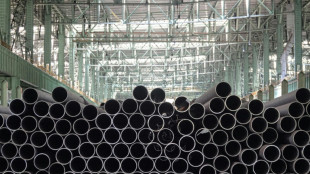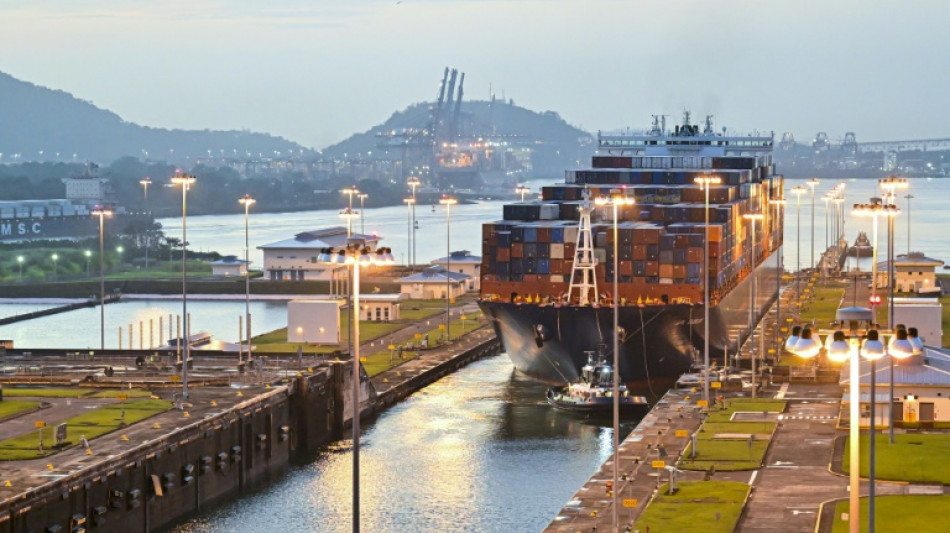
-
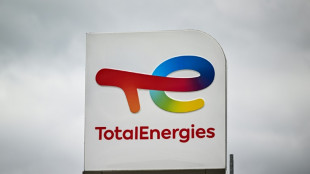 TotalEnergies profits drop as prices slide
TotalEnergies profits drop as prices slide
-
Volkswagen says tariffs will dampen business as profit plunges
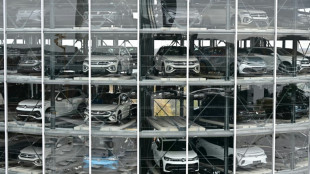
-
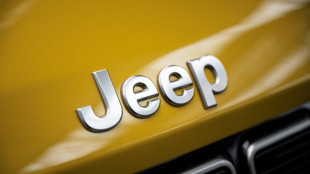 Jeep owner Stellantis suspends 2025 earnings forecast over tariffs
Jeep owner Stellantis suspends 2025 earnings forecast over tariffs
-
China's Shenzhou-19 astronauts return to Earth
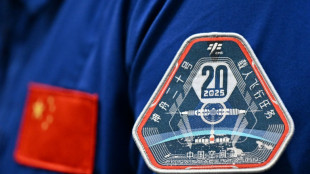
-
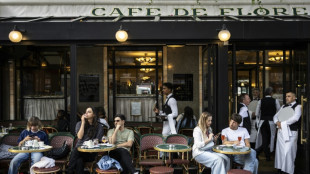 French economy returns to thin growth in first quarter
French economy returns to thin growth in first quarter
-
Ex-Premier League star Li Tie loses appeal in 20-year bribery sentence
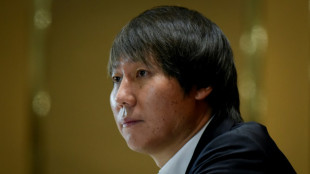
-
 Belgium's green light for red light workers
Belgium's green light for red light workers
-
Haliburton leads comeback as Pacers advance, Celtics clinch
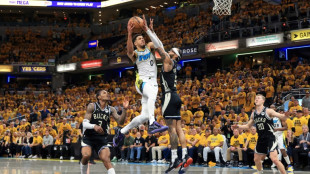
-
 Rahm out to break 2025 win drought ahead of US PGA Championship
Rahm out to break 2025 win drought ahead of US PGA Championship
-
Japan tariff envoy departs for round two of US talks
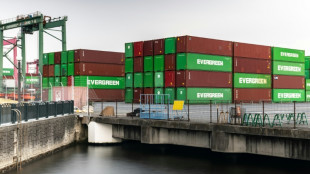
-
 Djurgarden eyeing Chelsea upset in historic Conference League semi-final
Djurgarden eyeing Chelsea upset in historic Conference League semi-final
-
Haliburton leads comeback as Pacers advance, Pistons stay alive
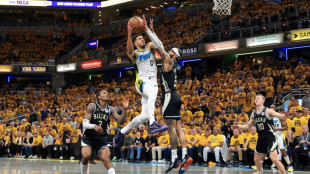
-
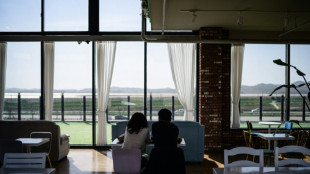 Bunker-cafe on Korean border paints image of peace
Bunker-cafe on Korean border paints image of peace
-
Tunics & turbans: Afghan students don Taliban-imposed uniforms
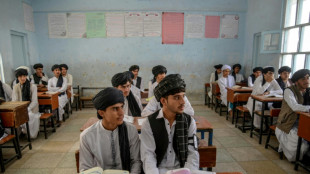
-
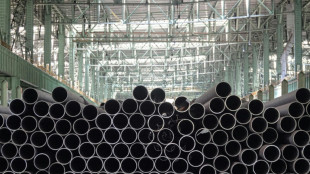 Asian markets struggle as trade war hits China factory activity
Asian markets struggle as trade war hits China factory activity
-
Norwegian success story: Bodo/Glimt's historic run to a European semi-final
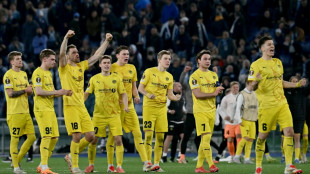
-
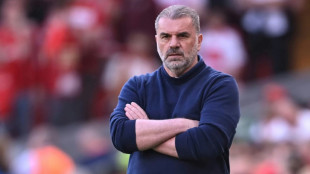 Spurs attempt to grasp Europa League lifeline to save dismal season
Spurs attempt to grasp Europa League lifeline to save dismal season
-
Thawing permafrost dots Siberia with rash of mounds
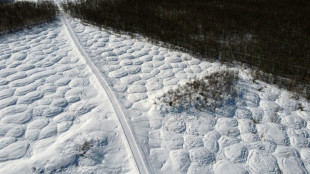
-
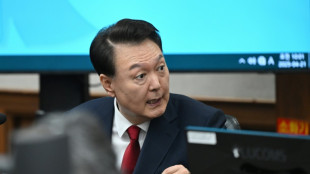 S. Korea prosecutors raid ex-president's house over shaman probe: Yonhap
S. Korea prosecutors raid ex-president's house over shaman probe: Yonhap
-
Filipino cardinal, the 'Asian Francis', is papal contender
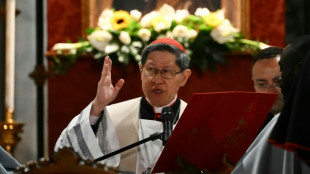
-
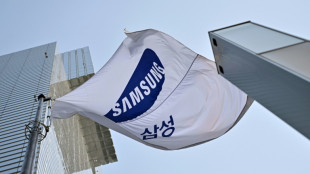 Samsung Electronics posts 22% jump in Q1 net profit
Samsung Electronics posts 22% jump in Q1 net profit
-
Pietro Parolin, career diplomat leading race to be pope
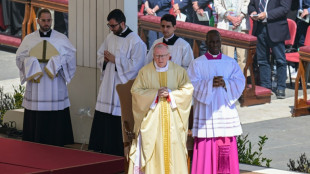
-
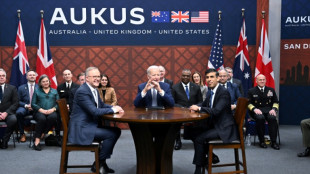 Nuclear submarine deal lurks below surface of Australian election
Nuclear submarine deal lurks below surface of Australian election
-
China's manufacturing shrinks in April as trade war bites
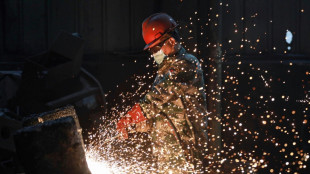
-
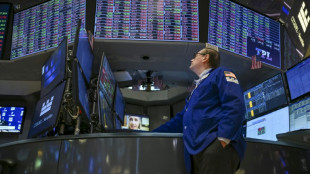 Financial markets may be the last guardrail on Trump
Financial markets may be the last guardrail on Trump
-
Swedish journalist's trial opens in Turkey
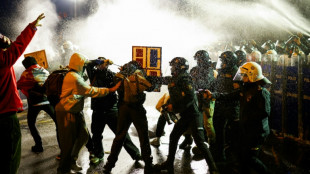
-
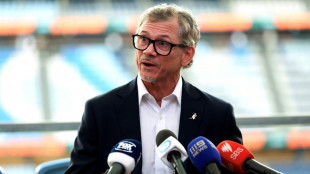 Kiss says 'honour of a lifetime' to coach Wallabies at home World Cup
Kiss says 'honour of a lifetime' to coach Wallabies at home World Cup
-
US growth figure expected to make for tough reading for Trump
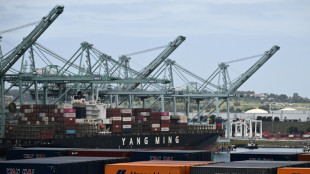
-
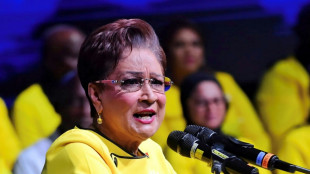 Opposition leader confirmed winner of Trinidad elections
Opposition leader confirmed winner of Trinidad elections
-
Snedeker, Ogilvy to skipper Presidents Cup teams: PGA Tour
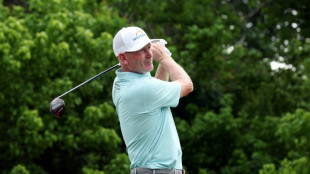
-
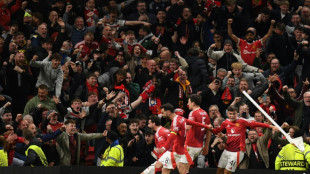 Win or bust in Europa League for Amorim's Man Utd
Win or bust in Europa League for Amorim's Man Utd
-
Trump celebrates 100 days in office with campaign-style rally
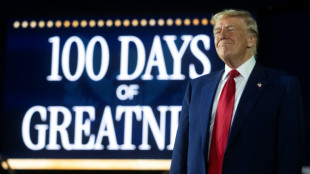
-
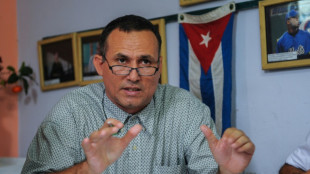 Top Cuban dissidents detained after court revokes parole
Top Cuban dissidents detained after court revokes parole
-
Arteta urges Arsenal to deliver 'special' fightback against PSG
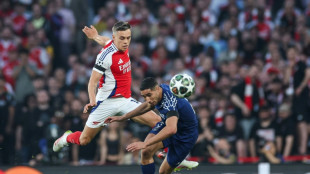
-
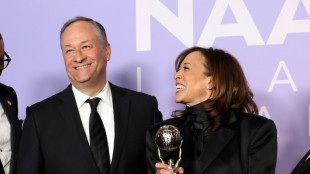 Trump fires Kamala Harris's husband from Holocaust board
Trump fires Kamala Harris's husband from Holocaust board
-
Pakistan says India planning strike as tensions soar over Kashmir attack
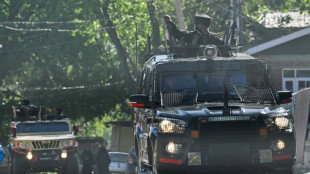
-
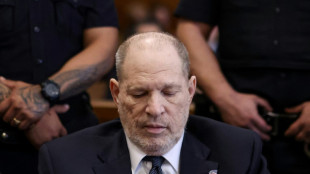 Weinstein sex attack accuser tells court he 'humiliated' her
Weinstein sex attack accuser tells court he 'humiliated' her
-
France accuses Russian military intelligence over cyberattacks
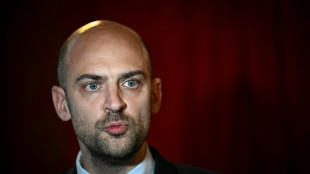
-
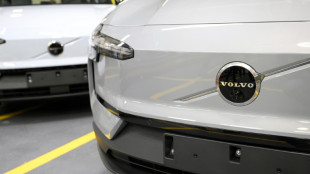 Global stocks mostly rise as Trump grants auto tariff relief
Global stocks mostly rise as Trump grants auto tariff relief
-
Grand Vietnam parade 50 years after the fall of Saigon
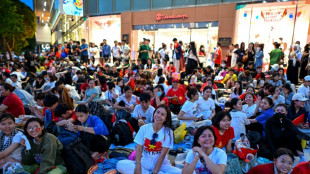
-
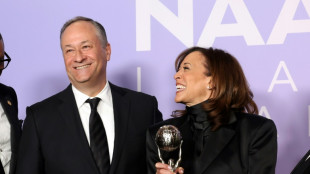 Trump fires ex first gentleman Emhoff from Holocaust board
Trump fires ex first gentleman Emhoff from Holocaust board
-
PSG 'not getting carried away' despite holding edge against Arsenal
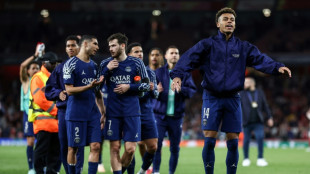
-
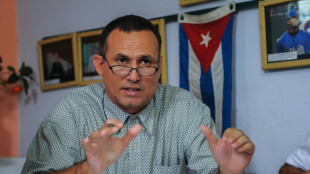 Cuban dissidents detained after court revokes parole
Cuban dissidents detained after court revokes parole
-
Sweden stunned by new deadly gun attack
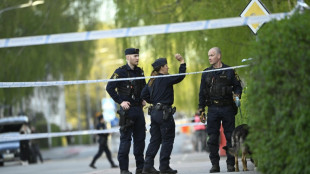
-
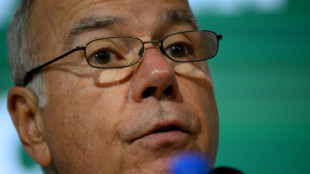 BRICS blast 'resurgence of protectionism' in Trump era
BRICS blast 'resurgence of protectionism' in Trump era
-
Trump tempers auto tariffs, winning cautious praise from industry
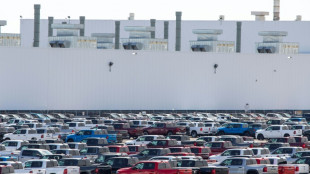
-
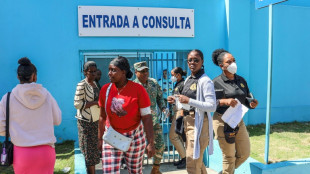 'Cruel measure': Dominican crackdown on Haitian hospitals
'Cruel measure': Dominican crackdown on Haitian hospitals
-
'It's only half-time': Defiant Raya says Arsenal can overturn PSG deficit
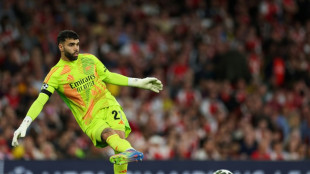
-
 Dembele sinks Arsenal as PSG seize edge in Champions League semi-final
Dembele sinks Arsenal as PSG seize edge in Champions League semi-final
-
Les Kiss to take over Wallabies coach role from mid-2026


Trump resurrects ghost of US military bases in Panama
US President Donald Trump's bid to take back control of the Panama Canal has put his counterpart Jose Raul Mulino in a difficult position and revived fears in the Central American country that US military bases will return.
After Trump vowed to reclaim the interoceanic waterway from Chinese influence, US Defense Secretary Pete Hegseth signed an agreement with the Mulino administration last week for the United States to deploy troops in areas adjacent to the canal.
For more than two decades, after handing over control of the strategically vital waterway to Panama in 1999 and dismantling the bases that protected it, Washington has regularly conducted maneuvers in the country.
So what is changing and why is the new agreement causing controversy?
- Will US military bases return? -
Although the agreement does not allow the United States to build its own permanent bases, Washington will be able to maintain a long-term rotational force in Panama, similar to the one it has in Australia and other countries, for training, exercises and "other activities."
The United States will be able to deploy an unspecified number of personnel to three bases that Washington built when it previously had an enclave in the canal zone.
That is a "flagrant violation" of the constitution, which prohibits foreign bases, and the 1977 handover treaties that establish the "neutrality" of the canal and permit only Panama to have military forces on national territory, Euclides Tapia, a Panamanian professor of international relations, told AFP.
But there is a loophole: one of the treaties "allows the US to defend the canal when it feels the neutrality is jeopardized," said Will Freeman, an expert at the Council on Foreign Relations, a US-based think tank.
Benjamin Gedan, former director for South America on the US National Security Council, argues that Panama has cooperated with the United States in securing the canal.
Panamanian lawyer Arturo Hoyos sees no violation of laws or treaties, as the new agreement allows "joint" operations.
- Is Mulino in trouble? -
Mulino's government says that the facilities and land belong to Panama and will be for "joint use" by US and Panamanian security forces.
He maintains that he has not ceded an inch of sovereignty to Trump, a natural right-wing ally
The agreement is a "trade-off" because it "limits the Trump administration's pressure tactics and hostility and maybe the scope of the concessions" by Panama, Freeman said.
"The risk that nobody's pricing in, at least on the US side, is that they make Mulino a lame duck" by humiliating him, leaving the Panamanian leader "unable to govern," he added.
Former presidential candidate Ricardo Lombana accused Mulino of "camouflaging" military bases and disguising "surrender" as "cooperation."
"The United States is recolonizing and reoccupying us," said Julio Yao, who advised the Panamanian government in the 1977 negotiations.
Gedan, a professor at Johns Hopkins University, believes Panamanians "are not willing" to allow the return of US bases due to the trauma of the past occupation of the canal zone and the 1989 US invasion to overthrow dictator Manuel Antonio Noriega.
- What does Trump really want? -
The United States considers a Hong Kong company's operation of ports at both ends of the canal to be a threat to its national security.
"Trump wants to minimize the risk of Beijing blocking the canal to prevent the passage of military vessels in a potential conflict," Gedan said.
Natasha Lindstaedt, an expert at Britain's University of Essex, sees the US moves as "part of a larger conflict with China as the US is trying to curb China’s influence in Panama and the region more generally."
Freeman said that the Trump administration "most likely is trying to show that if it wanted to, it could close the canal to Chinese commerce as a way of exerting pressure on China, either not to invade Taiwan or in the event of a conflict over Taiwan."
"What we're seeing in Panama is also about Trump's doctrine of peace through strength," he said.
But Tapia was skeptical that China really poses a threat, suggesting the threats were aimed at boosting Trump's domestic support.
"Canada becoming part of the United States or saying that they will take over the canal and Greenland is just a gimmick aimed at the American public," he said.
T.Ziegler--VB

